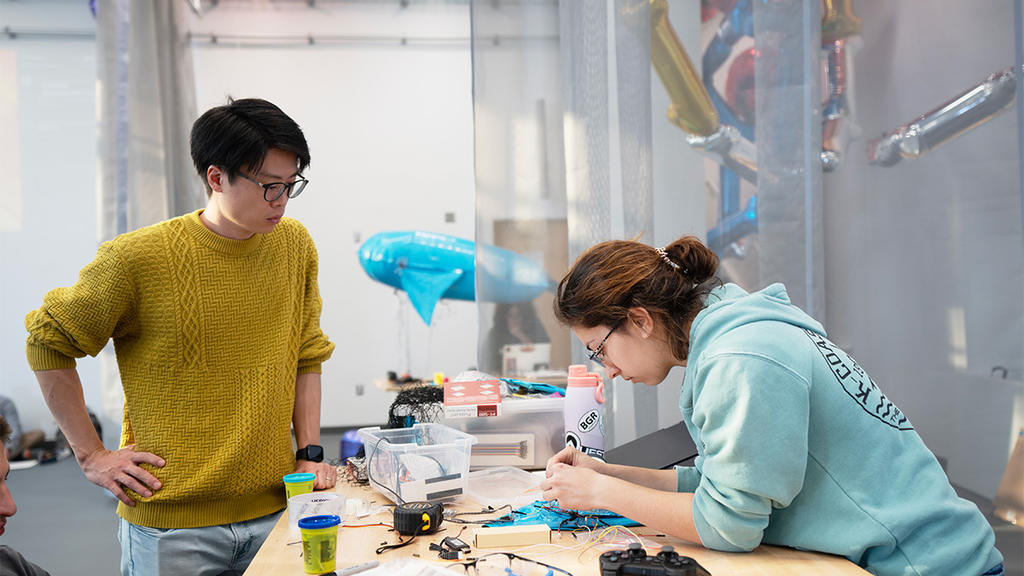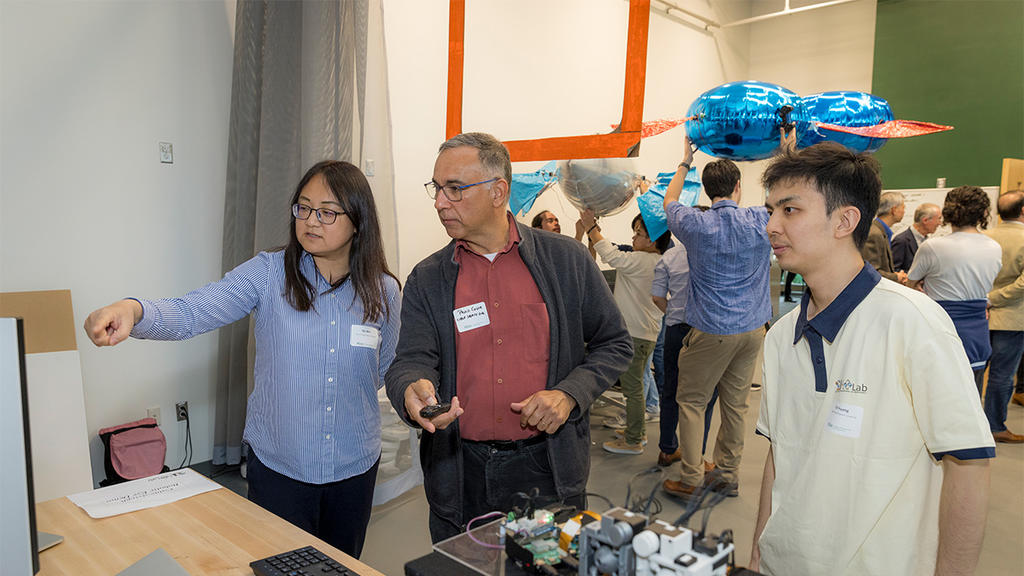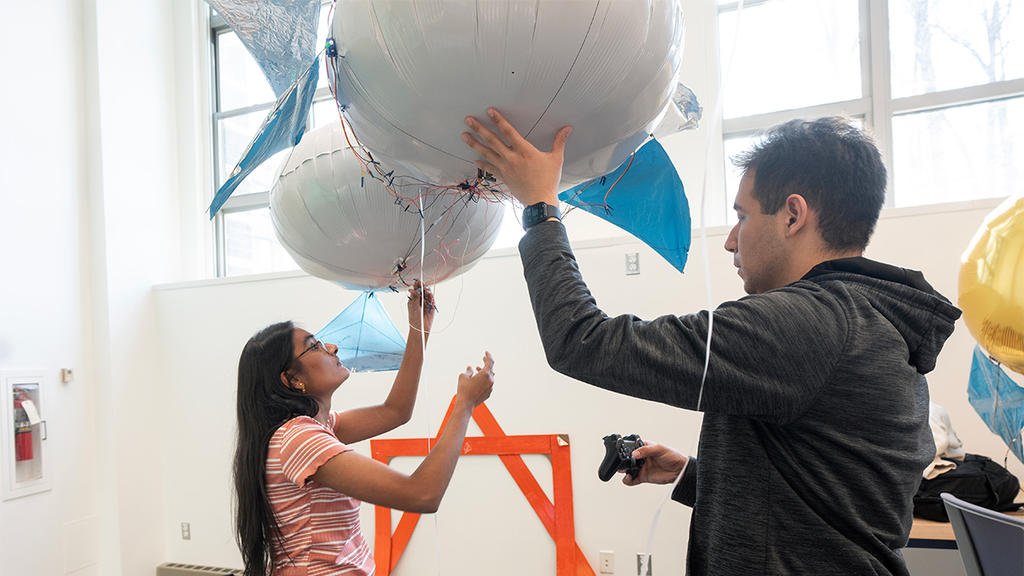The Mason Autonomy and Robotics Center (MARC) conducts research and provides unique educational opportunities to address local and global needs in autonomy, embedded artificial intelligence (AI), and robotics.
Our interdisciplinary activities take a holistic approach to growing technological demands by combining computer science, electrical and mechanical engineering, systems engineering, psychology, philosophy, and policy education and research.
Innovative Design
MARC is committed to creating new and forward-thinking autonomous and robotic systems that enhance human capabilities and improve quality of life.
Through interdisciplinary research and collaboration, the center fosters the development of technologies that push the boundaries of what robots and autonomous systems can do, making them more adaptable, efficient, and useful in real-world environments.


Validate and Verify
A critical aspect of MARC’s mission is ensuring that autonomous and robotic systems are safe, especially when integrated with artificial intelligence.
The center develops new tools, techniques, and methodologies to rigorously validate and verify these systems. MARC helps to build public trust in AI-driven robotics and supports their broader adoption by focusing on safety, reliability, and performance assurance.
Deploy Responsibly
Recognizing that technological innovation must be balanced with ethical and societal considerations, MARC emphasizes responsible deployment.
The center takes a holistic approach to examining the socio-technical impacts of robotics and autonomy. This includes evaluating how these systems affect individuals, communities, and institutions, and ensuring that deployment aligns with principles of safety and social responsibility.

MARC operates out of two key locations: the state-of-the-art Fuse building at Mason Square in Arlington, Virginia, and Research Hall on George Mason’s Fairfax Campus.
This dual-campus presence allows MARC to leverage the strengths of both sites—strategic proximity to federal agencies and industry partners in the D.C. metro area, and access to world-class research facilities and academic resources in Fairfax.
Address
3401 Fairfax Drive
MS 3B1
Arlington, VA 22201
Directions by Metro
Take the Orange or Silver Line to the Virginia Square–GMU station. After exiting, turn around to face Fairfax Drive, cross the street, and walk right. You’ll pass the FDIC Building on your left; the Fuse building is just beyond it.
Refer to the Metro Trip Planner to find route options and travel times.
Directions by By Bus or Other Transit
For Metrobus, Arlington Rapid Transit (ART), and other options, visit Mason Transportation.
Address
Research Hall
001 York River Rd.
Fairfax, VA 22030
Directions by Car
From University Drive, continue onto Patriot Circle. Go through two traffic lights, then turn right onto Sandy Creek Way at the second stop sign. Make an immediate left into the visitor level of the Shenandoah Parking Deck.
Parking & Walking Directions
Park near the back exit of the Shenandoah deck for the shortest walk. Exit the garage and walk downhill on York River Road. Research Hall will be on your left, next to the Nguyen Engineering Building.
